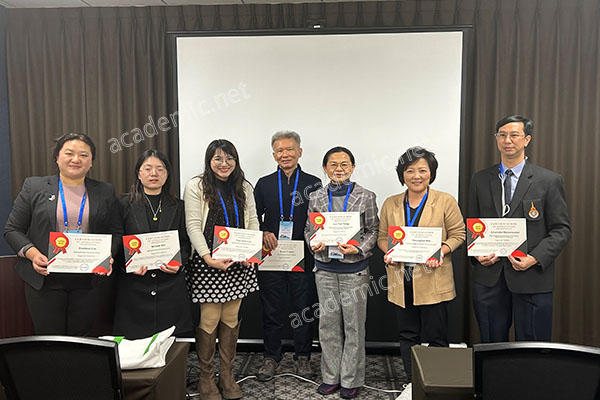International Conferences: A Comprehensive Guide
International conferences play a crucial role in the academic and professional development of researchers, scholars, and industry experts. They provide a platform for presenting new research, networking with peers, and staying updated with the latest trends and advancements in various fields. This comprehensive guide will walk you through everything you need to know about international conferences, from finding the right event to making the most of your participation.

International conferences are large-scale events that attract participants from around the world. These conferences typically focus on specific academic disciplines, industries, or interdisciplinary themes. They are organized by professional associations, academic institutions, and industry leaders to foster knowledge exchange and collaboration.
Benefits of Attending International Conferences
1. Knowledge Sharing and Learning
Attending international conferences allows you to:
- Present Your Research: Share your latest findings with a global audience.
- Learn from Experts: Gain insights from keynote speeches, panel discussions, and workshops led by industry leaders and renowned researchers.
- Stay Updated: Keep abreast of the latest trends, technologies, and methodologies in your field.
Conferences provide unparalleled networking opportunities:
- Meet Peers and Mentors: Connect with researchers, professionals, and potential collaborators.
- Expand Your Professional Network: Build relationships that can lead to future collaborations, job opportunities, and mentorship.
- Engage in Discussions: Participate in informal discussions and Q&A sessions to deepen your understanding and exchange ideas.
Participating in conferences contributes to your professional growth:
- Gain Recognition: Presenting at prestigious conferences enhances your academic and professional profile.
- Develop Presentation Skills: Improve your public speaking and presentation abilities.
- Earn Continuing Education Credits: Many conferences offer credits or certificates that contribute to your professional development.
Finding the right conference is crucial. Here’s how you can identify suitable international conferences:
1. Online Conference Directories
Use online directories to search for conferences by date, location, and topic:
- Academic.net: Visit Academic.net for a comprehensive list of upcoming international conferences across various disciplines.
Check the websites of professional associations related to your field. They often organize or list relevant conferences.
3. University and Institutional Resources
Many universities and research institutions provide information on upcoming conferences. Reach out to your department or research office for recommendations.
4. Call for Papers (CFP) Websites
Websites like WikiCFP aggregate calls for papers from various conferences, making it easier to find events seeking submissions.
Preparing for an International Conference
1. Submit Your Paper or Abstract
If you plan to present, ensure you:
- Follow Submission Guidelines: Adhere to the conference’s format and submission requirements.
- Meet Deadlines: Submit your paper or abstract by the specified deadline.
- Prepare a Strong Proposal: Craft a compelling proposal that highlights the significance and originality of your research.
Register early to benefit from early bird discounts and secure your spot, as popular conferences can fill up quickly.
3. Plan Your Travel and Accommodation
- Book Accommodation: Choose a convenient hotel close to the conference venue.
- Arrange Travel: Book flights and local transportation well in advance.
- Visa Requirements: Check visa requirements for the conference destination and apply early if needed.
- Create Visual Aids: Develop slides or other visual aids to support your presentation.
- Practice: Rehearse your presentation multiple times to ensure clarity and confidence.
- Prepare for Q&A: Anticipate potential questions and prepare thoughtful responses.
1. Engage Actively
- Attend Sessions: Participate in sessions, workshops, and networking events.
- Ask Questions: Engage with speakers and attendees by asking insightful questions.
- Join Discussions: Take part in panel discussions and roundtables.
- Exchange Contact Information: Carry business cards and exchange contact information with new connections.
- Follow Up: After the conference, follow up with the contacts you made to strengthen relationships.
- Take Notes: Document key insights, ideas, and contacts during the conference.
- Share Knowledge: Share what you’ve learned with colleagues and peers.
- Apply Learnings: Implement new ideas and methodologies in your research or professional practice.
- Stay Updated with Academic.net
For a detailed list of upcoming international conferences and additional resources, visit Academic.net. Academic.net offers a comprehensive database of academic conferences, helping researchers and professionals stay informed about important events in their field.
By following this guide, you can effectively navigate the world of international conferences, enhancing your research impact, professional network, and career development. For more information and conference listings, explore Academic.net.
